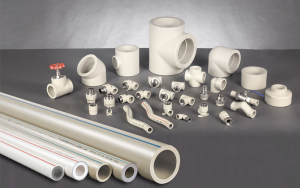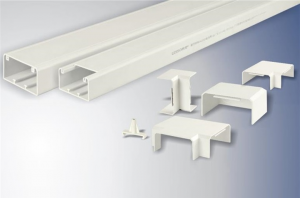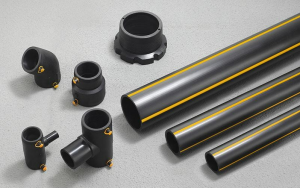Table of Contents
Cleaning your gutters regularly will help you extend their life and maintain the health of your property. Read on to learn more about the best time to clean gutters and how scheduled maintenance can keep your gutters clear.
Gutter Maintenance Is Key to a Functional Home
Gutters protect your home from water damage and the buildup of natural debris. Clogged gutters can cause water to back up and pool on your roof, where it can spill and run down your walls and into your foundation.
Left unchecked, rainwater runoff can cause stained walls, roof rot, mold growth, and cracked foundations. It can also seep into your home and create an attractive environment for pests and vermin.
You can avoid hazardous and expensive rainwater damage with routine seasonal cleaning. Our guide will explain when, why, and how often you should clean your gutters and show you how to protect them throughout the year.
How Often to Clean Gutters Depends on Your Environment
There are many environmental factors that influence how frequently you’ll need to clean your gutters. Trees, squirrels, and birds can drop leaves, seeds, and debris into your gutters all year.
Pine trees shed cones and needles that can create blockages, and animals may use your gutters as shelter. As a rule of thumb, clean your gutters twice a year. If you have tall, mature trees that hang over your house or live in a wet and windy climate, you may need to clean your gutters more often.
When to Clean Gutters: Determining the Best Cleaning Schedule
For best results, clean your gutters seasonally and as needed to clear out buildup and help water flow freely. You should also do a monthly check for leaks and blockages.
During the fall season, it may be necessary to clean your gutters more than once. Overflowing gutters or gushing downspouts also need immediate attention and careful maintenance going forward.


When is the Best Time to Clean Gutters
Most professionals recommend that you clean your gutters twice a year, in the spring and fall.
Spring Cleaning
As winter ends and the weather warms up, cleaning out your gutters will prepare them for heavy spring rains. Take this opportunity to check your gutters for damage from winter storms or freezing temperatures and make sure they direct water away from your house.
Fall Maintenance
Fall is the perfect time to clean out debris that has accumulated over the summer. You can also clear away newly shed leaves and make sure your gutters are secure and ready for the cold season.
Other Considerations for Seasonal Gutter Cleaning
Gutters that are filled with water and soaked plant matter can put strain on their mounting brackets and damage your siding, roof, and windows. Keeping your gutters clear, aligned, and properly fastened will keep problems at bay.
Four Benefits of Cleaning Your Gutters
Prevent Water Damage to Your Home's Foundation
If your gutters clog up, water can pool on your roof, spill down walls, and wear down and crack the foundation. To prevent water damage, keep your gutters clean.
Avoid Roof Leaks and Damage
Blocked gutters can add excess weight and pressure to your roof and cause cracks, leaks, and wear. Continuous exposure to moisture can cause your roof to mold or rot.
Prevent Gutter Overflow and Water Infiltration
Cleaning your gutters prevents water from building up, overflowing, and harming the structure and foundation of your home. Preventing future damage will save you from paying for major repairs later.
Reduce the Risk of Pest Infestations and Mold Growth
A gutter filled with damp plant matter is an ideal home for pests. Rodents, spiders, and insects can damage gutters and find their way into your home.
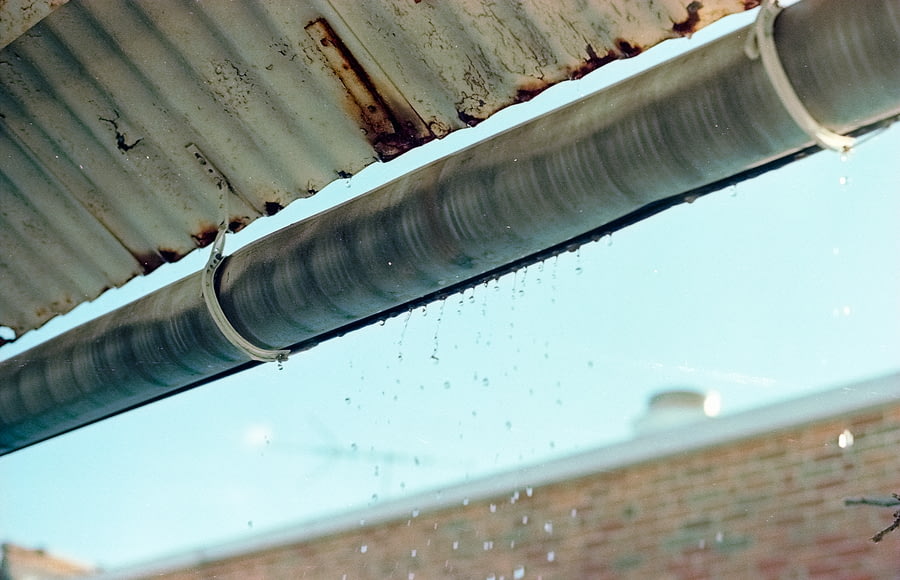

Prevent Gutters From Clogging With Regular Gutter Maintenance
Clear Away Debris and Leaves
Trimming an overhanging tree canopy protects your gutters from falling branches, keeps leaves out, and makes it harder for animals to climb onto your roof or into your home. Clear away leaves that fall after stormy weather and when the seasons change.
Check for and Repair Leaks
If water drips behind your gutters, they may not be properly sealed with flashing. Every joint and seam needs to be closed off with a specially formulated water- and sunlight-resistant gutter sealant. You should also cover and fill small holes with roofing cement.
Align Your Gutters and Downspouts
As time passes, your gutters can fall out of alignment. The gutter channel that runs along the underside of your roof needs to slope downward so water can drain toward the downspout and flow to the ground.
The gutter should drop about a quarter inch every ten feet. Gutters angled at a too-steep slope can cause water to rush out and flood the downspouts, which can cause water to leak into your foundation or basement.
You can reposition your gutters so that water will flow easily toward the downspout. Repair or replace any loose, bent, or broken brackets and sections of gutter as needed.
The downspouts that feed your gutter drains direct water away from your property. Above-ground downspouts should be angled so that water drains out toward the yard, driveway, or street.
Heavy winds, rain, hail, snow, and ice can weaken or loosen your gutters. Whenever a storm passes through, check your gutters to ensure they’re draining correctly.
Install Gutter Guards or Screens for Added Protection
Wet leaves can easily cling together during a windy storm and plug up your gutters. Installing gutter guards or screens can help keep your gutters clean. A gutter guard directs water over its rounded nose into the gutter while leaves and detritus fall to the ground.
Stainless steel fine mesh gutter guards can catch seeds and needles, but some sand and dirt can still get through. Gutter guards are easy to clean with a brush or compressed air. Plastic drop-in screens work with a variety of different roofing materials, but they may let small debris into your gutters.
Take Other Preventive Measures to Reduce Clogging
A leaf catcher is a low-maintenance alternative to gutter screens and guards that works by catching debris as it comes through the downpipe.
Since the detritus is collected at ground level, you can easily remove blockages by hand without using any special equipment or ladders. You can also install a capped all-in-one gutter system to keep out debris.
Seasonal Gutter Maintenance Keeps Your Home in Top Shape
Clean, properly installed gutters protect your home from water damage and keep it looking fresh. Clogged, misaligned, and leaky gutters can lead to pest, mold, and structural problems that can become hazardous and lower your property value.
Maintaining your gutters now with regular cleanings will prevent you from needing to make expensive repairs down the line. Whether you hire a gutter cleaning service or do it yourself, you should clear out your gutters in the early spring and early fall to keep them in top shape all year.
Find the Best PVC Gutters for Your Home at LESSO
When you’re looking to repair, replace, or install a gutter system for your home, shop LESSO for the best pipes and parts on the market. We offer many types of gutters, drainage pipes, and fittings for residential buildings.
You can choose from a variety of products, including PVC-U drainage pipes, PVC gutters, and siphon-type roof drainage systems that take water away from your home. All of our pipes are rigorously tested to ensure they meet the highest standards for performance and quality.
FAQs about Gutter Clean
Water overflowing from the gutters. This is a sure sign that your gutters are clogged and need to be cleaned. Staining or mildew on your gutters or siding. This is caused by water that is not draining properly, and it can lead to more serious problems if it is not addressed.
Yes, not having gutters can cause mold. Gutters are designed to collect rainwater and direct it away from your home. Without gutters, water will pool around your foundation and eventually seep into your home. This can cause water damage, which can lead to mold growth.
- Wear safety gear. This includes a hard hat, safety glasses, gloves, and long pants.
- Be careful on ladders. If you are cleaning gutters from a ladder, make sure it is stable and that you have a spotter to help you.
- Clean the gutters from the bottom up. This will help to prevent debris from falling back into the gutters.
- Check for leaks. If you find any leaks, repair them immediately.
- Clean the downspouts. The downspouts are just as important as the gutters, so be sure to clean them out as well.
- Use the right tools. A gutter scoop is a good tool for removing large debris, and a garden hose can be used to flush out the gutters.
Recommend Reading
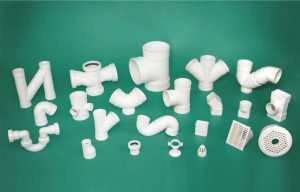

How to Choose the Right Drainage Pipe for Your Home
Do you need to update the drain pipes in your home? Your house drainage system is responsible for removing the wastewater from your home and


Are PVC Gutters Good?
Gutters are an essential part of your house as they protect your foundation, landscaping, and prevent your basement from flooding. Using PVC gutters and downspouts




